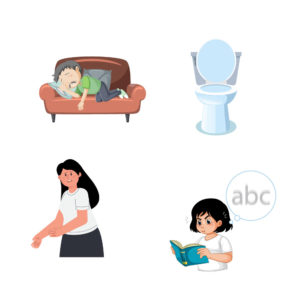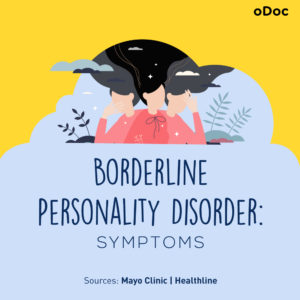You Don’t Want Diabetes, This is Why.
Ever wondered why people refer to diabetes as ‘sugar’? Some even assume that diabetes is caused by sugar. There’s a connection for sure, but diabetes is a much more complex health condition.
What’s more alarming is how common diabetes is.
It doubles the risk of death. And every 20 seconds one person loses their leg somewhere in the world due to diabetes.
Globally, more than 530 million people are affected by it, and this is expected to reach a half billion by the end of this decade. Recently, the World Bank reported that in Sri Lanka, 11.3% of the adult population (between the ages of 20 and 79) have diabetes. That’s quite a significant number and shouldn’t be taken lightly.
Therefore, you should know a few very important things about diabetes.
Diabetes in Simple Terms
Your body transforms a lot of the food you eat into sugar (glucose) and releases it into your bloodstream. When your blood sugar increases, it signals the pancreas to create insulin. Insulin is used to convert blood sugar into energy.
With diabetes, your body doesn’t make enough insulin or can’t use it that well. This leads to having too much blood sugar in your bloodstream. When this builds up, this can lead to many serious health problems like heart disease, vision loss and kidney failure.
The poor health condition due to the high blood sugar level is called Diabetes.
The Types of Diabetes and its Causes
You might be curious what causes this, let’s cover that one type at a time.
Type 1 Diabetes
This results from the failure of pancreas to create enough insulin. Only around 5-10% of those who have diabetes are affected by this type.
Cause: It’s still not clearly known. Even though some believe it to be the body attacking itself.
Type 2 Diabetes
This occurs when your body doesn’t use insulin well and struggles to maintain healthy blood sugar levels. Around 90-95% of the people have type 2 diabetes.
Cause: Obesity, poor physical activity and genetics have a part to play.
Did you know? A survey reported that around 30% of the Sri Lankan population didn’t engage in recommended moderate-intensity physical activities. And Females were considered more inactive than males.
Gestational Diabetes
This happens in pregnancy and often can be harmful for the baby.
Cause: Mostly unknown but it’s believed that the pregnancy hormones get in the way of the mother’s insulin creation.
There’s no cure for diabetes of any form. Having said that, with early diagnosis and proper care, all of the above conditions can be managed very well.
Signs of Diabetes
Start by being aware of the symptoms of diabetes.
- Weight gain or loss while always feeling hungry
- Always thirsty
- Wanting to urinate all the time
- Feeling too tired around the clock
- Blurry vision
- Frequent genital or skin infections
- Cuts and bruises take forever to heal
- Tingling sensation or numbness in the hands or feet
- Trouble of getting or maintaining an erection
With diabetes type 2, a majority show no symptoms until it’s too late. This is why regular check-ups are key!


Diabetes Diagnosis in Sri Lanka
If you feel the above symptoms are too familiar, head to your nearest hospital or if you’re unsure, you can always call a doctor via oDoc.
Here are a few tests that your doctor may carry out to diagnose.
- Fasting Blood Sugar:
You will have to fast for 8 hours without eating or drinking except water.
- Random Blood Sugar:
- HbA1C:
You don’t have to fast for these tests and it can be carried at any time of the day.
- Oral Glucose Tolerance Test:
You will fast for 8 hours and after that you’ll be given a glucose drink. Two hours later, your blood sample will be taken.
Treating and Preventing Diabetes
If you’re diagnosed with diabetes, it’s not the end of the world. It’s a new beginning to refresh your lifestyle.
Treatment:
Your doctor will prescribe oral medications and insulin doses depending on the type of diabetes and the severity of it.
Other than that, lifestyle changes and regular monitoring makes up a great proportion of it. Interestingly, these are also the two things that are important to prevent diabetes.
Prevention:
- Eat healthy. Choose foods that are rich in nutrients and fiber instead of calories and fat. Get the help of a nutritionist if needed; there are plenty of recognised professionals on ODoc.
- Get moving. Allocate a minimum of 30 minutes daily to improve your physical activity.
- Take regular tests. ODoc app connects you with the country’s leading practitioners in seconds. This way, you can find out if you’re eligible for any of the tests in the most convenient way!

You don’t always show symptoms so, every 3 years, approach your doctor to learn if you need any.
However, if you relate to any of the below, you may need to get checked every 12 months.
- Overweight
- Sedentary lifestyle
- High blood pressure
- High cholesterol and lipids
- Slightly high blood sugar
- Polycystic Ovary Syndrome (PCOS)
- Family history of diabetes
- Dark, thick and velvety skin over neck and armpits.
Although there’s no complete cure, diabetes is a completely manageable condition. If you have more questions, speak to an endocrinologist from the safety and comfort of your home via oDoc today!
Sources
- WHO
- CDC
- World Bank
- SLDF
Similar Articles...

How to Keep Work Stress from Taking Over Your Life
How to Keep Work Stress from Taking Over Your Life In today’s fast-paced and competitive world, work stress has become an all-too-common problem that affects

Hypertension: Everything You Need to Know
Hypertension: Everything You Need to Know Hypertension, commonly known as high blood pressure, is a chronic medical condition that affects a significant portion of the

Understanding Borderline Personality Disorder: Symptoms, Causes, and Treatment Options
Understanding Borderline Personality Disorder: Symptoms, Causes, and Treatment. Borderline Personality Disorder (BPD) is a mental health disorder characterised by instability in mood, behaviour, and relationships.
